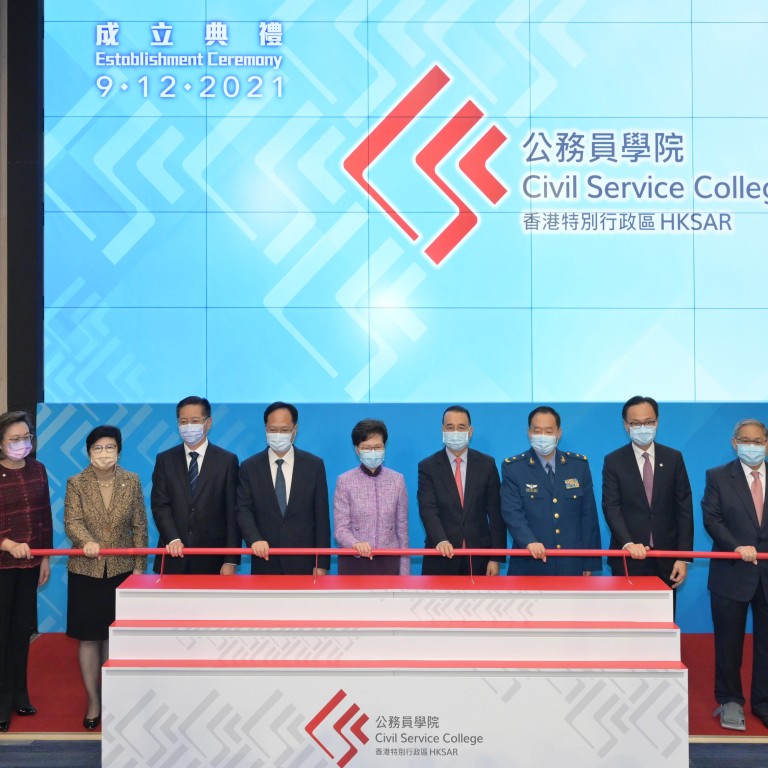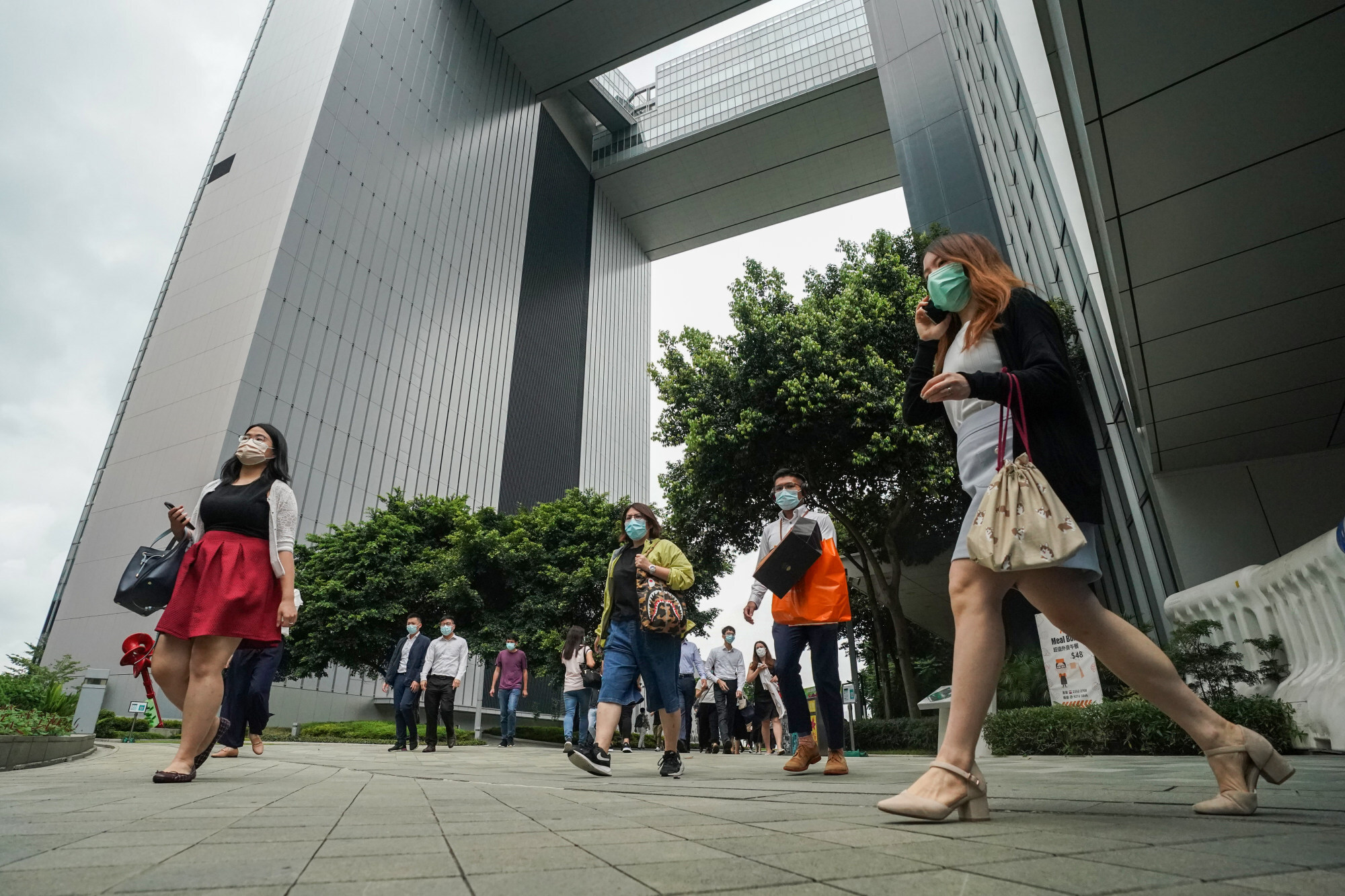
Hong Kong leader calls on local officials to understand ‘vision, spirit’ of Communist Party
- ‘It is basic political ethics for civil servants to be patriotic,’ adds Chen Dong, deputy director of Beijing’s liaison office in the city
- The instructions for public officials were handed down at a ceremony marking the establishment of a new Civil Service College
Zhang Xiaoming, deputy director of the State Council’s Hong Kong and Macau Affairs Office, also said the city’s more than 170,000 government workers should develop an “international vision” and “strategic thinking” to cope with a rapidly changing global sociopolitical environment.
Zhang handed down the instructions via a video-link at a ceremony on Thursday marking the establishment of a new Civil Service College, which is due to open its doors in 2026.
US using democracy as pretext to interfere in Hong Kong affairs: officials
“The college’s promotion of civil servants’ understanding of the national [social and political] structure and national development is also part of the drive to promote national education and patriotic education. But as members of the governing team, civil servants should have a deeper understanding than others,” Lam said.
Noting that the constitution stipulated the centrality of the socialist system, with Communist Party leadership as its “defining feature”, she added: “As civil servants of the Hong Kong special administrative region, especially those officials in leadership positions, they should respect and understand the vision and spirit of the Chinese Communist Party.”
Zhang, meanwhile, said the central government attached great importance to training Hong Kong civil servants, and pledged his office would continue its push for closer cooperation with the city government in that area.
He also cited President Xi Jinping’s diktat in 2017 that local civil servants should “serve the country with a sincere heart”, have “shame for avoiding duties” and share “the same spirit throughout all ranks” to accomplish their work.

Also at Thursday’s event was liaison office deputy director Chen Dong, who said: “It is basic political ethics for civil servants to be patriotic and safeguard the nation’s interests and security.”
Setting up a civil service academy has been a pet policy of Lam, who first raised the idea after visiting Singapore’s Civil Service College during her first official visit as chief executive to the island state in 2017.
At the time, she said public servants in Hong Kong were unaccustomed to “thinking out of the box”, and should embrace new technology as Singapore did.
She included the idea in her first policy address in 2017, and announced the following year that a site for the project had been identified in Kwun Tong.
Hong Kong’s basis to exist as special region ‘depends on Chinese constitution’
Enhancing officials’ understanding of the city’s constitutional order – and of the Basic Law and the national security law – was the most important aspect of their training, according to civil service minister Patrick Nip Tak-kuen, who also spoke on Thursday.
The college would also seek to enhance civil servants’ awareness of international affairs and promote exchanges with government staff in other jurisdictions, he added.
Nip said there were plans for more Hong Kong civil servants to be sent across the border for exchanges and study, including a one-year master’s degree programme in public administration at Peking University.
He noted that the commissioner of Beijing’s foreign ministry office in the city, Liu Guangyuan – who was also in attendance, along with the deputy chief of the national security office and the head of the People’s Liberation Army garrison’s political unit – would brief senior local officials next week on the country’s foreign policy.
Lee Fong-chung, chairman of the Hong Kong Senior Government Officers Association, agreed with the thrust of Thursday’s remarks, saying the Communist Party was “the ruling party of the country, and there is a need to have a better understanding of how it operates and the way it does things”.
Beijing’s representative in Hong Kong stresses constitution’s supremacy
Lee, who also attended the ceremony, said he was not worried that the college would become a political school, adding that many members of his association were looking forward to the more structured courses to be offered.
He also said he hoped the new college would create “a ladder of learning to encourage career progression, instead of the piecemeal approach in the past”.
Construction of the 161,000 sq ft Civil Service College is expected to start next year, and is set to be completed in phases beginning from the end of 2026, with recruitment for the institution’s leader already under way.
In the meantime, the administration has upgraded facilities at its existing training centre in the North Point Government Offices.

